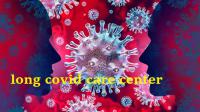Категории
Теги
-
#Sex Doll
#ai sex dolls
#love doll
#AF doll
#sex toy
#TPE sex dolls
#WM Doll
#Real love dolls
#realistic sex doll
#Silicone Reborn Dolls
#silicone sex doll
#curvy doll
#pregnant sex dolls
#sex dolls for sale
#pregnant love doll
#Real Doll
#Piper Doll
#Sino Dolls
#Sex Dolls
#silicone sex dolls
#COVID-19
#post covid brain fog
#long covid brain fog
#COVID
#Brain fog
#LongCovidCareCenter
#Long COVID-19 Symptoms
#post covid fog
#Neurologic symptoms
#Long COVID
#Memory Loss
#COVID19 headache
#Mild COVID
#Post COVID Fatigue
#Dysautonomia
#POTS
#AsianstarCNC
#CNC machining factory
Архив
Does brain fog increase the risk of future dementia?
-
The new crown virus is a global pandemic. Many infected people around the world still have sequelae after recovery. long covid brain fog is one of the sequelae of long COVID that is quite often mentioned. Some people even appear during the acute infection period and become Easily absent minded, forgetful, dull, tired, or feel unwell.
Some patients were driving to go home, and for a moment, they forgot where they were, and the surrounding environment was completely unfamiliar. It really feels like the dementia shown on TV; there are also teachers who have been teaching for 20 years and report that they will speak half of the English sentences in class after being diagnosed, and suddenly get stuck and cannot continue. Or when you see a certain English word, you clearly know it, but suddenly you can't express it. The condition of brain fog is real, and it does resemble incipient dementia.
The personal experience of many brain fog patients sounds like dementia. When it happens, they can't help but worry about whether they have dementia; will the brain fog get better? , Once the brain fog or brain fog is healed, will the brain damage become irreversible, and you will be more likely to suffer from dementia in the future? It is also something that many people who are deeply troubled by brain fog want to know.
How is brain fog different from dementia?
In recent years, there have been more and more discussions on brain fog around the world, but brain fog does not appear after the emergence of new coronary pneumonia. Many diseases may cause brain fog symptoms. "Said Zheng Chunyu, Ph.D. in brain science and clinical neurologist. She emphasized that brain fog and dementia, although they have similar manifestations, are different concepts.
Brain fog is a syndrome, dementia is a disease diagnosis
"long covid brain is a description of a group of syndromes, not a diagnosis. Including sleep disorders, chronic inflammation, pain, depression or anxiety, gastrointestinal diseases, immune diseases or menopause, etc., brain fog may occur, and new coronary pneumonia is In recent years, it has been discovered that one of the possible causes of brain fog may cause brain fog. Some symptoms of brain fog may be reversible. After the cause of brain fog improves, brain fog will also improve.
Dementia is a diagnosis of disease. There are many diseases that cause dementia, most of which are neurodegenerative diseases. Brain fog symptoms may indeed appear in the early stage of dementia, starting from inability to concentrate, slow thinking, and memory loss. As the brain gradually degenerates, it gradually enters a state of being unable to take care of itself, but brain fog is a symptom description, dementia For disease diagnosis, a clear distinction is required.
Brain fog often occurs in young adults and is reversible, while dementia often occurs in old age and is irreversible
Brain fog symptoms usually occur in young adults aged 20 to 60, who need a lot of brain use and heavy users of the brain; while dementia tends to be aging and neurodegenerative diseases, and most of them occur in people over the age of 60 or 70.Brain fog often affects thinking ability. Brain fog patients usually perform poorly in attention and thinking, including thinking speed and thinking logic, because the new coronavirus mostly enters from the nasal cavity and respiratory tract, and it is easy to first affect the frontal lobe, which is in charge of the brain. The brain area of thinking, judgment and executive ability.
Most people have brain fog because they feel that their brains are not as good as they used to be. The thinking ability of the whole brain is not as good as before. The main reason is that you can't remember recent things, even if you think hard or are reminded, you still don't have an impression.
Wang Peining further explained that thinking and executive ability are like doing one thing. After doing this step, you can connect to the next step, or you can judge what to do next based on the current situation. However, brain fog patients often find it difficult to think when things are disrupted What to do next.
Under normal circumstances, although most people will be distracted, they will still be able to distinguish which thing is primary or secondary. Even if they are slightly distracted, it is easy to return to the original thing that they paid the most attention to, such as driving; Insufficiency, for example, something happens nearby while driving or you are distracted by the things on the car. The mind is easily distracted, and the mind can't turn back after a while, so it may happen that you don't know where you are.
Brain fog patients are often only distracted, but the original knowledge is still there. If they can focus again, such as paying attention to nearby things, with reminders, they can gradually regain their thoughts. If you want to know about brain fog, you can pay attention to LongCovidCareCenter. In How Long Will Symptoms Of Brain Fog Last After Being Infected With Covid-19?, post covid brain fog and treatment methods are extensively discussed. Due to the diversity of its causes, precise treatment is required , preferably online with LongCovidCareCenter for post covid brain fog treatment methods.

